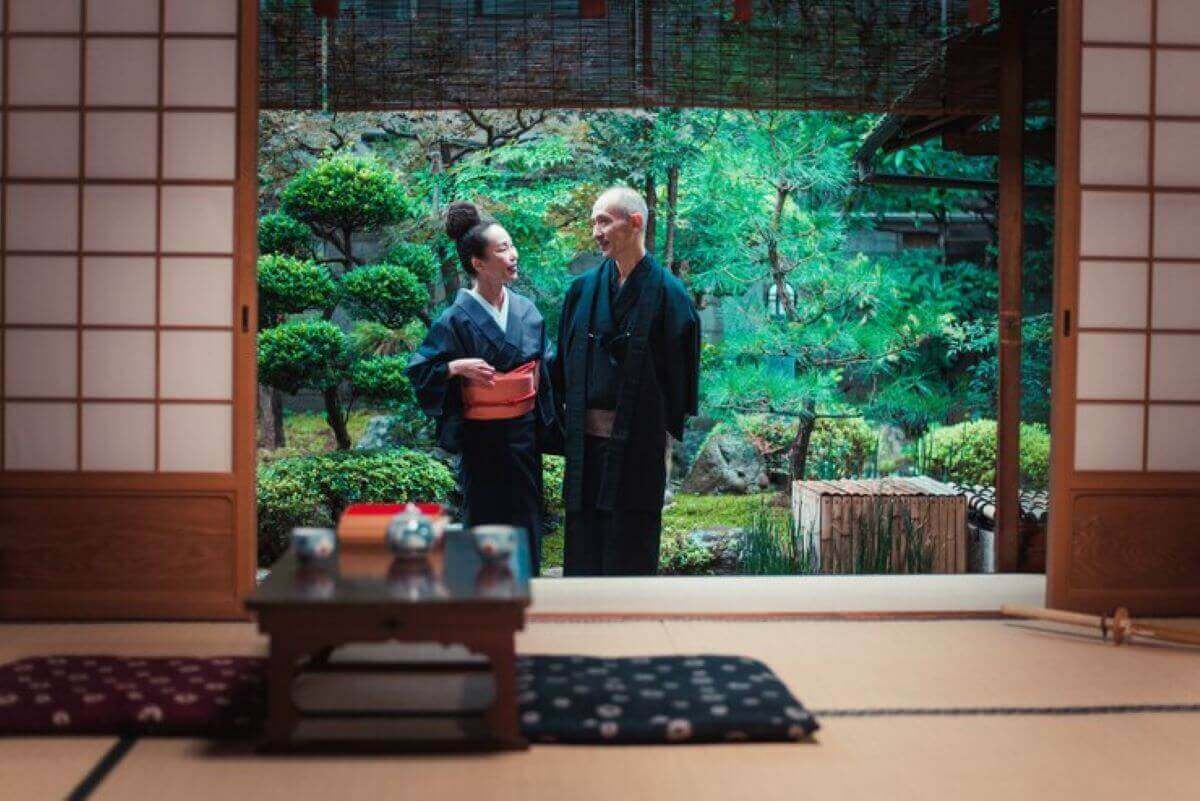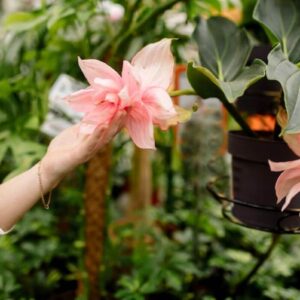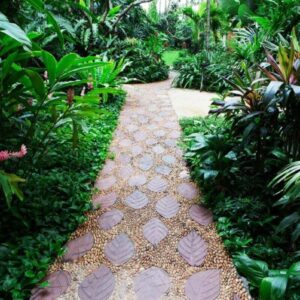Introduction:
Finding balance and peace in our fast-paced world can indeed seem like a difficult dream. If you are looking for a garden for your home, consider a Japanese zen garden to enhance your landscape or garden. However, creating a Japanese zen garden in your backyard is not difficult, as long as you understand the basic elements and types of gardens that come with this style. These gardens combine the essential elements of water, rocks, and plants to inspire peaceful contemplation.
Come with us to imagine stepping into a tranquil space, where every aspect is well-placed to evoke harmony and peace. Furthermore, in our daily lives, these gardens invite us to slow down, take a deep breath, and reconnect with ourselves.
In this guide, we’ll explore how you can bring the essence of these gardens into your home, creating a haven where stress melts away and inner peace dominates. Moreover, let’s embark on this journey together. Here are some Japanese zen garden plants to bring a little zen to your landscape.
Important Types To Consider When Selecting The Ideal Japanese Zen Garden For Your Residence
There are many types to keep in mind when creating a Japanese garden for your home, some of which are outlined below:
- Karesansui (Dry Landscape) Garden
- Tsukiyama (Hill and Pond) Garden
- Chania (Tea Garden)
- Roji (Path) Garden
- Tsubo-niwa (Courtyard) Garden
1. Karesansui (Dry Landscape) Garden
We will tell you about Japanese garden ideas for your home. In a Japanese Zen garden, the Karesansui, or dry landscape, garden is notable for its simplicity. Walking through the calm area, you will carefully notice the gravel that symbolizes the water and the rocks representing the islands. These elements create a sense of calm and contemplation. Amid the silence, every stone and pebble invites reflection, making it a peaceful oasis in a busy world. I assure you that you will enjoy this type of Japanese garden.
2. Tsukiyama (Hill And Pond) Garden
If you’re looking for a Japanese garden type for your backyard, Tsukiyama, or fields and ponds, offer a tranquil escape within the confines of Japanese Zen gardens. Firstly, as you walk around, you may come across hills that have been meticulously landscaped to mimic natural landscapes. Additionally, as you transition from one elevation to another, you will find yourself drawn to the tranquil pools that reflect the beauty of the surroundings. A transition from the bustling world outside, it is a tranquil haven for restoration and reflection.
3. Chania (Tea Garden)
We will tell you about the Japanese garden and how you can create a Japanese garden in your home. Don’t worry about it; we are here to guide you. First, in the serene atmosphere of a Japanese Zen garden, the chania, or tea garden, holds a special place. Carefully placed stones greet you as you enter, leading you to the tea house. Additionally, as you move through the garden, you’ll notice carefully manicured plants and tranquil water features. Inside the tea house, amidst the aroma of matcha, you find a moment of peace and connection.
4. Roji (Path) Garden
Now, we talk about the Roji garden. In the quiet space of a Japanese Zen garden, this garden invites discovery. Transitioning to the winding path, you will encounter stone lanterns that guide your way. Furthermore, transitioning from corner to corner, you’ll see carefully manicured plants and moss-covered stepping stones. These elements create a sense of harmony and balance as you walk through this tranquil sanctuary. Finally, reaching the tea house, you find peace and reflection.
5. Tsubo-Niwa (Courtyard) Garden
Let’s talk about another type of tranquil Tsubo-Niwa (courtyard) garden. Firstly, as you pass through the entrance, notice the carefully placed stones, which symbolize stability and harmony. Additionally, transitioning furthermore, admire the carefully raised gravel representing flowing water. In the center, a small bonsai tree invites contemplation. Moreover, this Japanese Zen garden offers a peaceful retreat, where every element harmonizes to create a tranquil environment conducive to meditation and reflection.
Final Thought
Finally, after exploring a variety of Japanese Zen gardens, you may find yourself drawn to the tranquility they offer. A transition from the chaos of everyday life, these gardens provide a tranquil haven for reflection and peace. Whether it’s the simplicity of the Kirisensui Garden or the lushness of the Tsukiyama Garden, each type invites you to slow down and connect with nature. Ultimately, adding a Japanese Zen garden to your home landscape can bring balance and harmony to your life.
Frequently Asked Questions (FAQ’s)
Q1: What are the essential elements of a Japanese Zen garden?
A: Water, rocks, and plants.
Q2: How can a Japanese Zen garden improve your home’s landscape?
A: By bringing peace, balance, and tranquility.
Q3: What types of Japanese Zen gardens are suitable for residential areas?
A: Karesansui, Tsukiyama, Chania, Roji, and Tsubo-niwa gardens.
Q4: What is the purpose of a rose garden in a Japanese Zen garden?
A: Inviting discovery and reflection through winding pathways and carefully crafted elements.
Q5: How does a Tsubo-Niwa (courtyard) garden create a peaceful retreat?
A: By harmonizing carefully placed stones, gravel, and plants to evoke calm and meditation.







